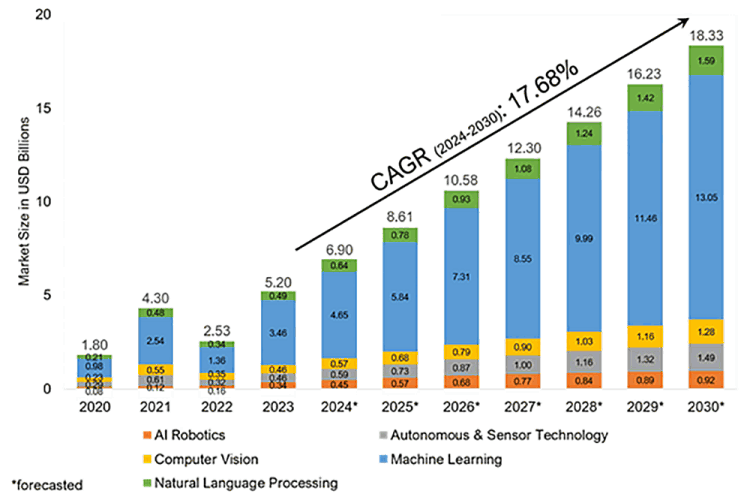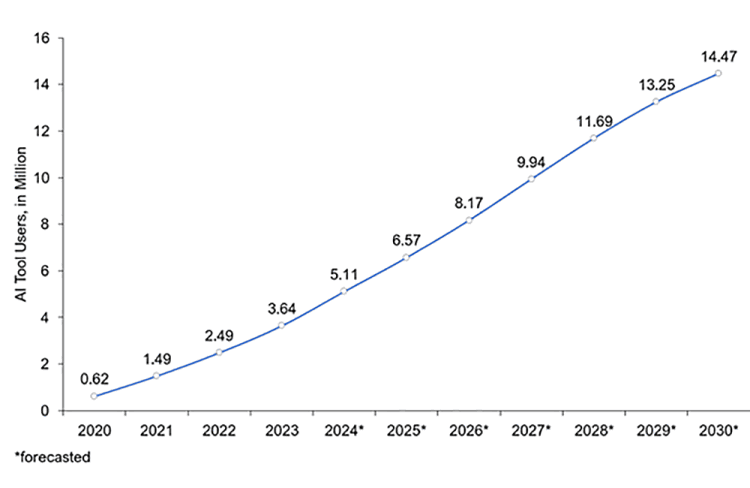
In 2024, Africa stands at the precipice of an artificial intelligence (AI) revolution. With a projected market size of USD 18,33 billion by 2030, the continent is poised to harness the power of AI to tackle pressing challenges such as poverty alleviation, improved healthcare delivery, and agricultural efficiency. These AI-driven solutions hold the key to unlocking unprecedented growth and sustainable development.
The potential for AI in Africa is vast, with a particular focus on the machine learning (ML) industry, which will account for 71% of the market by 2030. Machine learning enables systems to learn and adapt from data without explicit programming. This capability is particularly valuable in Africa, where datasets are often large and complex, making ML ideal for identifying patterns and trends to drive transformative solutions. As the African AI market experiences a CAGR of 17,68% from 2024 to 2030, the continent has a unique opportunity to leverage this technology for sustainable development.

One key opportunity lies in the education sector, where AI-powered tools can help bridge the gap in skilled workers. AI can provide personalised learning experiences, adaptive tutoring systems, and automated grading that allow educators to reach more students and provide targeted support. By 2030, the number of AI tool users in Africa is expected to grow from 3,64 million to 14,47 million. This user surge can be attributed to the increasing demand for AI-driven solutions in various sectors, such as healthcare, agriculture, and finance, highlighting the need for widespread AI literacy and skills development.
In healthcare, AI can help improve disease detection and prevention, while in agriculture, it can optimise crop yields and combat challenges like locust infestations. In finance, AI can facilitate smoother B2B transactions and promote financial inclusion in Africa's rising markets. However, the rapid expansion of AI presents challenges that must be addressed. For example, only 14% of companies are ready to integrate AI into their operations, and just 6% have trained more than 25% of their employees to use it. In addition, Africa currently has one of the lowest rates of employee training on Generative AI at 3%.

To capitalise on AI's opportunities, African nations must prioritise training and upskilling their workforce to ensure a smooth and effective integration of AI technologies. This will improve productivity, create new jobs, and stimulate economic growth. Moreover, the ethical use of AI must be a priority. Clear AI governance frameworks that respect human rights and values are essential to ensure the technology is used responsibly. Governments and businesses must collaborate to create a trustworthy AI development, use, and outcomes environment.
In conclusion, Africa's AI market is set to grow exponentially, presenting many opportunities for sustainable development and growth. By investing in AI education, training, and ethical practices, African nations can harness the power of AI to transform the continent and create a brighter future for its people.

© Technews Publishing (Pty) Ltd. | All Rights Reserved.